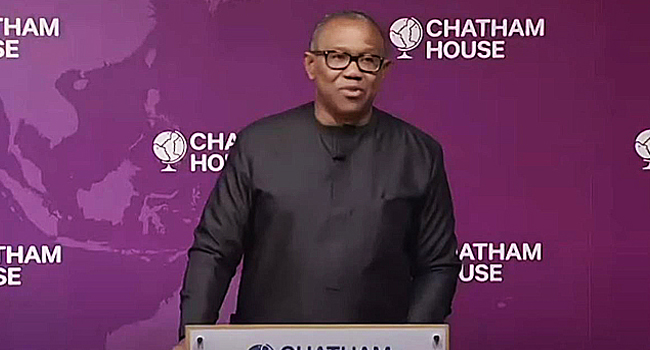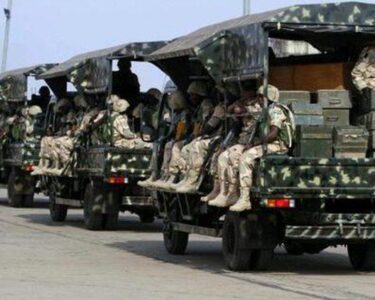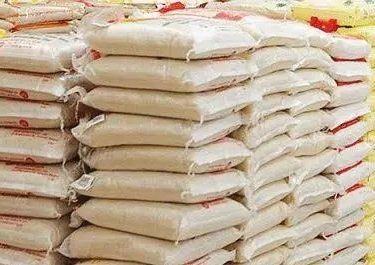The presidential candidate of the Labour Party (LP), Peter Obi has identified corruption as the major factor chasing foreign investors and their capital away from the Nigerian economy.
Speaking at Chatham House in London on Monday Obi promised to enthrone the rule of law in order to enable businesses and investments thrive in the country once again.
He also vowed to tackle Nigeria’s multifarious challenges including oil theft, debt servicing, secessionist agitation, youth unemployment, electricity problem, insecurity, amongst others.
According to Obi, the “structure” currently in Nigeria is that of criminality and it has impoverished the country. He, therefore, vowed to dismantle the “structure” if elected next month.
Obi said he would fight and end public corruption. “Go and check my records. It is there,” he said, adding that he is the only former governor that did not owe salaries, gratuities or any pension after he left office.
The LP presidential candidate said he would provide enabling business environment that will attract foreign investments.
Obi said, “Bringing back foreign investors is like bee and honey. All you need to do is to create honey and the bees would find it.
“Foreign capital is scared of corruption, is scared of bad policies, is scared of where there is no rule of law. You need to put regulatory and secure environment. We will fight corruption.”
Obi said Nigeria borrows for consumption and not for investment. “When you borrow for consumption, you have a crisis,” he said.
“We have grown that debt by over 400% but our per capital is 2,000. That means the money we borrowed was thrown away.
“We will restructure the debt for a long time to be able to pay it. Then we will say no more borrowing for consumption but for investment.”
“Revenue shortfall and leakages such as oil theft will be dealt with decisively by holding persons in positions of authority fully accountable,” the LP presidential candidate said.
The former Anambra State governor said he would “turn around the power sector” if elected by February 25. According to him, he would move Nigeria’s power generation capacity from 4,000 megawatts to 7,000 megawatts by the end of 2023.





